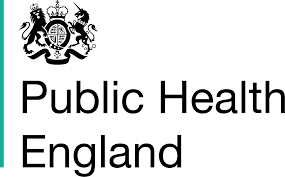By Gabriel Princewill-
The Office Of National Statistics today published a study that revealed statistics about the percentage of people in Great Britain worried about the effect of the Coronavirus on their life.
The study revealed that 80% of adults were worried about the effect that the coronavirus (COVID-19) was having on their life.
The percentage of this figure varied from 76% in the East Midlands and in Scotland to 87% in the North East. The Department Of Health found that those in the age bracket of 16 to 34 years in the North East, were particularly worried.
Thee research found that in London, three out of every five workers said they worked from home in April 2020 due to the coronavirus pandemic. The study concluded that individuals from other countries and regions had workers in the East of England, East Midlands being least likely to work from home.
It found that people in Wales were most likely to have access to a private garden, while people in London had least access.
Londoners
The research found that Londoners were the most likely to visit a park or public green space. The reverse was the case for Wales, who were the least likely to visit a park.
According to it findings, Londoners had the lowest awareness of the government’s Stay at home guidelines in April, researchers found. This was a negative reflection on Londoners.
Awareness was highest in the West Midland and the South West, where 64% of people checked on their neighbours at least once in April, compared with London, where 48% had checked on their neighbours at least once.
In Scotland and the North East, around half of people thought their household finances would remain the same in the coming 12 months.
People from London and the South East had a more pessimistic outlook, with almost half (48%) saying they expect their household finances to worsen.
James P Harris, Cities Statistician, Office for National Statistics said:
”Understanding the impact on society. This bulletin presents data and indicators at the country and region level from a new module being undertaken through the Office for National Statistics’ (ONS’) Opinions and Lifestyle Survey (OPN) to understand the impact of the coronavirus (COVID-19) pandemic on British society.
In this bulletin, and the associated tables of data, we present results for Wales, Scotland and the nine English regions.
The statistics used for this publication are based on a pooled data set made by combining four waves of data collected by the OPN, providing survey data from 5,320 adults surveyed between 3 April and 3 May 2020.
The provisional number of deaths registered in England and Wales in the week ending 17 April 2020 (Week 16) was 22,351; this represents an increase of 3,835 deaths registered compared with the previous week (Week 15) and 11,854 more than the five-year average; this is the highest weekly total recorded since comparable figures begin in 1993.
Of the deaths registered in Week 16, 8,758 mentioned “novel coronavirus (COVID-19)”, which is 39.2% of all deaths; this compares with 6,213 (33.6% of all deaths) in Week 15.
In London, over half (55.5%) of deaths registered in Week 16 involved COVID-19. The North West and North East also was reported to have a high proportion of COVID-19 deaths, accounting for 42.3% and 41.1% respectively of deaths registered in these regions.
Of deaths involving COVID-19 registered up to Week 16, 77.4% (14,796 deaths) occurred in hospital with the remainder occurring in care homes, private homes and hospices.
The number of overall deaths in care homes for Week 16 was 7,316. The report showed that this was 2,389 higher than Week 15, almost double the number in Week 14, and almost triple the number in Week 13.
It reported that week 16 included the Easter Monday bank holiday.
The five-year average shows a decrease in registrations over the Easter holiday.
The report made provision for the fact that Coronavirus Act 2020 allowed registry offices to remain open over Easter, and this may have reduced any drop in registrations for Week 16 2020′.




